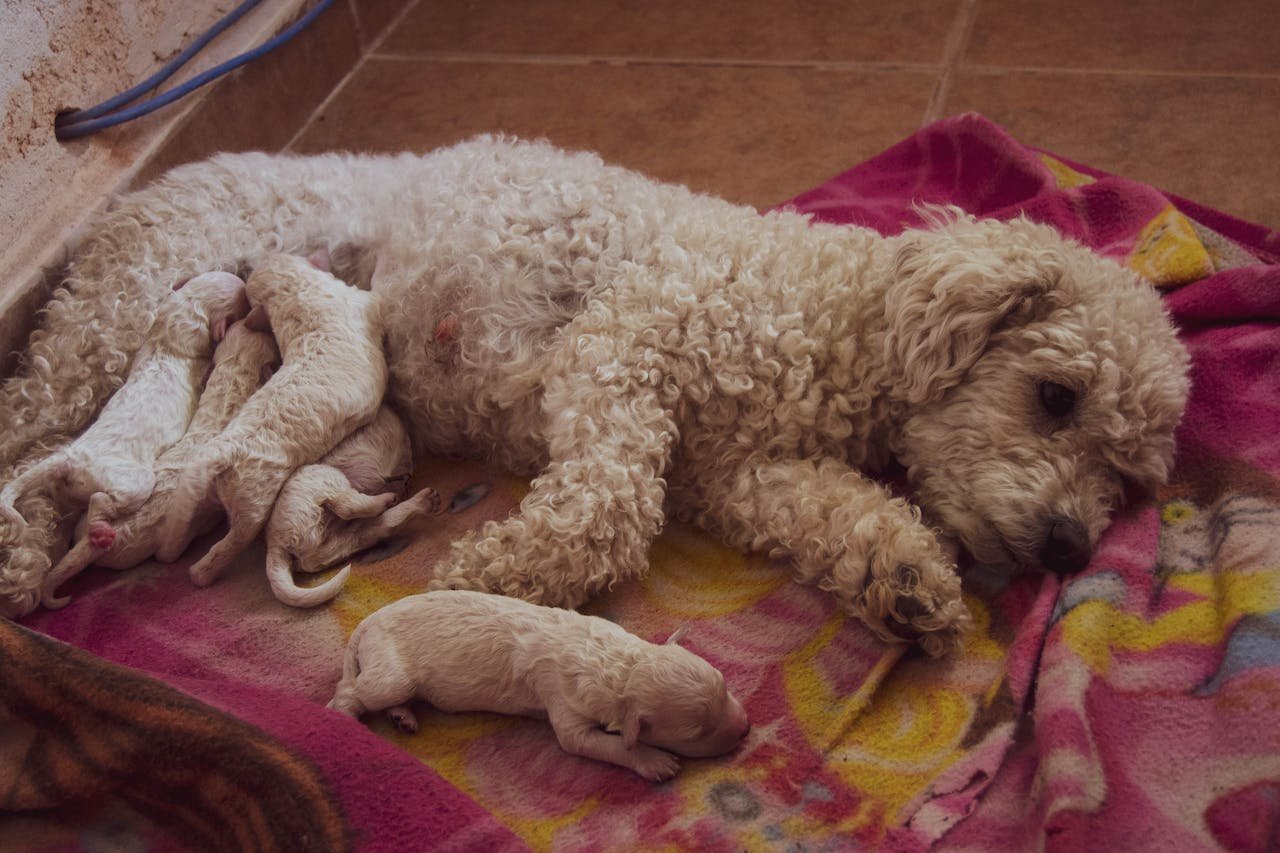How to spot if your newborn puppy isn’t getting enough milk
Whether you’re an experienced dog breeder or a bit of a novice, looking after newborn puppies can be a challenge. Although it’s a lovely heartwarming experience, as responsible dog breeders it’s critical to ensure their well-being is a priority.
One of the first things to consider is that they’re getting the nutrition they need in early life. Adequate nourishment is vital for their growth and development. In this blog, we'll explore six signs that indicate your newborn puppy might not be getting enough milk and what you can do to ensure they thrive.
Looking for information on providing a pregnant dog with adequate nutrition? Check out our ultimate guide for dog pregnancy nutrition!

What to look out for when checking your newborn litter is getting enough milk
-
Lack of Weight Gain:
One of the first indicators that your puppy may not be receiving enough milk is a lack of weight gain. Regularly monitor your puppy's weight and growth to ensure they are hitting the appropriate milestones. A consistently underweight puppy may be struggling to get enough nutrition.
-
Weakness and Lethargy:
Puppies should exhibit playful and energetic behaviour when they’re old enough. If you notice a puppy is lethargic or weak, it could be a sign of nutritional deficiency. Proper nutrition is the cornerstone of a healthy, active puppy.
-
Constant Crying or Whining:
Communication is limited for newborn puppies, and crying or whining may be their way of expressing hunger. If your puppy seems unsettled and is vocalising excessively, it might be an indication that they're not getting enough milk. Pay attention to their cues and respond accordingly.
-
Dehydration:
Inadequate milk intake can lead to dehydration in puppies. Check for signs such as dry gums, sunken eyes, or lethargy. Ensure that your puppy has access to clean water, but also consult your veterinarian for advice on how to address dehydration in newborns.
-
Difficulty in Suckling:
Some puppies may experience difficulty in latching onto their mother's teats, preventing them from getting sufficient milk. Observe their feeding behaviour closely. If you notice struggling, frustration, or if they detach frequently, it's crucial to intervene and seek guidance from a professional.
-
Abnormal Stool and Urine:
A puppy's stool and urine can provide valuable insights into their health. Diarrhoea, constipation, or a significant change in the colour or consistency could indicate nutritional issues. Regularly monitor your puppy's bathroom habits and consult your vet if you notice any abnormalities.
What are the top 10 signs that a dog is an ideal breeding candidate?
What to do if you’re worried your newborn puppy isn’t getting enough milk
Caring for a newborn puppy requires vigilance, patience, and a deep commitment to their well-being. If you observe any of the signs mentioned above, it's essential to consult with a veterinarian promptly.
Addressing nutritional concerns early on can make a significant difference in your puppy's health and development. Remember, a healthy start ensures a happy and thriving life for your newest furry family member.
Temperament testing - is it worth it?
Check out our other handy guides for dog breeders.